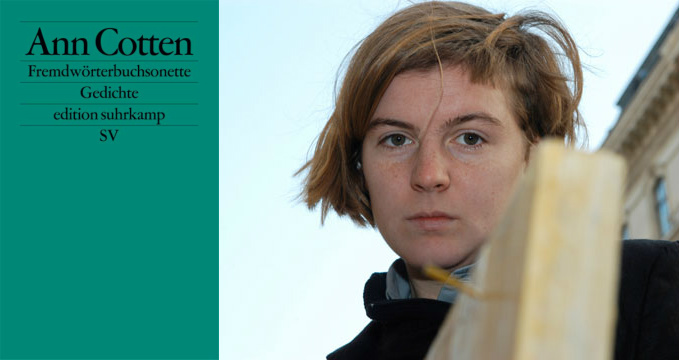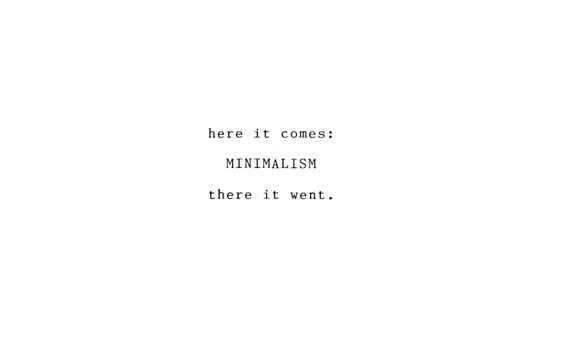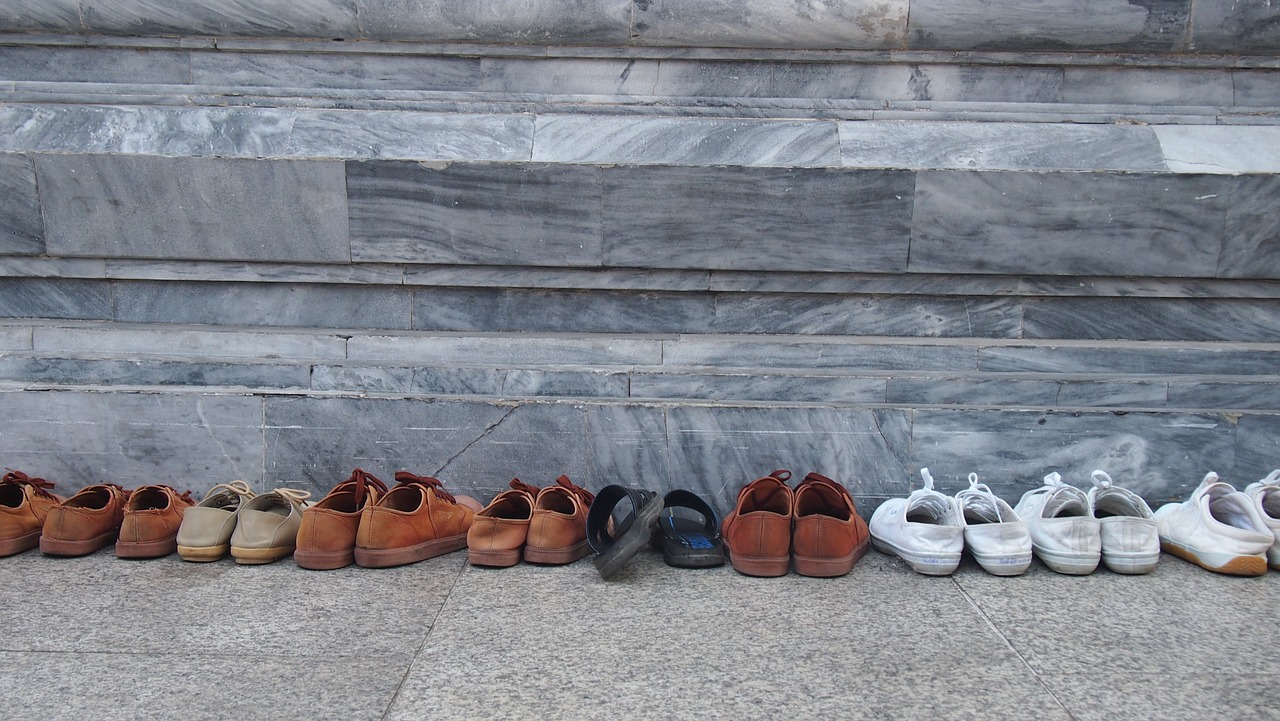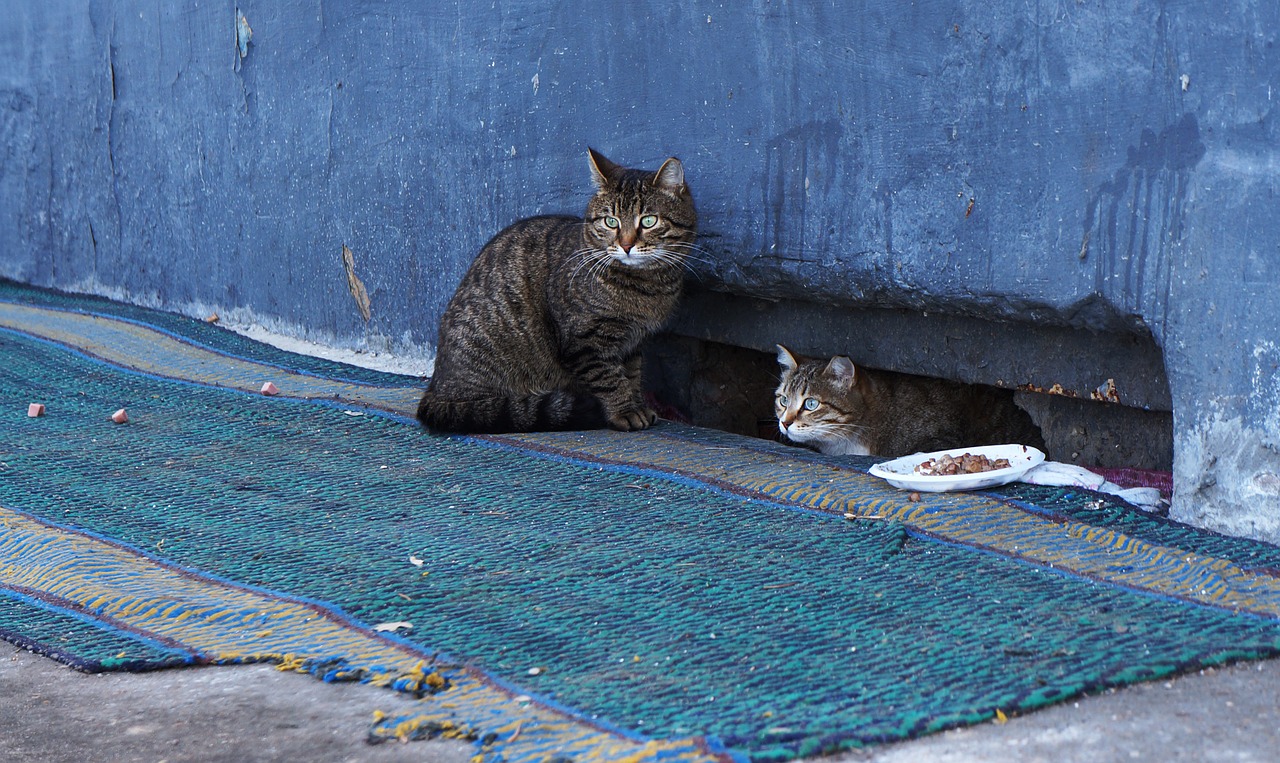houpačka
it morned. godded.
thin soup enspooned on the stove.
an emotion to match. an H on the access tabulations,
in lukewarm plates. like H, like morn.
i didn’t go to the Hraveyard with dad.
not even when things prayered down on him. READ MORE…

"technically speaking, you’ll clasp her to your knees. / you’ll clean her fish ponds / to make her laugh."
houpačka
it morned. godded.
thin soup enspooned on the stove.
an emotion to match. an H on the access tabulations,
in lukewarm plates. like H, like morn.
i didn’t go to the Hraveyard with dad.
not even when things prayered down on him. READ MORE…

Spanish/French/English—a multilingual Translation Tuesday, translated by criticism editor Ellen Jones
Select translation:
“But why do you want to go to Haiti?” they asked her in Santo Domingo. “You crazy?”
She only smiled like a naïve foreigner, mumbled something about a sociolinguistic interest in the borderlands, and went out of the department with her Lotman under her arm. While she waited for the bus to the coach station she looked over the timetable that her classmates had reluctantly given her. It was going to take the whole day. The first thing she had to do was leave the city by the Carretera Sánchez.
“I’m only going as far as Barahona,” the driver warned her when he heard where she was going. “From there, you’re on your own.”
She didn’t mind. She sat on the left hand side so she could say goodbye to the sea; she fixed her eyes on the waves while the vehicle moved over the concrete. The blue was giving way little by little to green. When nothing but mountains was visible, she fell asleep. She woke up just in time to see the Arco del Triunfo.
She had a hard time finding someone to take her the rest of the way. Finally she ended up with a lorry driver whose job was to supply sugar cane to the city’s sugar factory. He was loading his vehicle with big water bottles.
“There’s not enough water over there,” he explained. “I’m going to make more on this trip than I make in a month going back and forth like crazy.”
They set off when the driver was sure that he’d made use of every cubic metre of his hold. They left the city behind and went into the sugar plantations. The lorry’s cabin shook with a wave of vituperation against the sugar industry. How they were worked from sun up to sun down. How bateyes still existed. How people were dying from machete wounds. How even after everything slavery still persisted, it’s just that now they called it minimum wage. Then the Laguna del Rincón appeared, and the criticism was directed towards uncontrolled fishing and the loss of heritage as a result of greed.
“They extract gypsum from that mountain,” he concluded signaling towards the other side. “Don’t get me started on the mines.”
She didn’t. She wasn’t about to get involved in ethical debates with a man who was trying to sell water at the price of mercury to the victims of an earthquake. Besides, enough people had confided in her their misfortunes for her to know that all of Latin America was singing from the same song sheet: each country had its own versions of the same general ills.
They stopped in Duvergé for something to eat: rice and pigeon peas. As soon as their plates were clean her companion stood up.
“We’ve got to get to Jimaní before nightfall: it’ll be hard to find somewhere to spend the night.”
They could barely make out the city when it became clear that something was out of the ordinairy. It was seething. For the second biggest cité in the municipalité, there were too many people. And people in the streets. They had to réduice their speed to avoid running someone over. They soon understood that they were principalment refugees. They stopped in front of a house d’aspect humble.
“They’re distant relatives” her guide excused himself. “Tomorrow you can go to the border. It’s only two kilometres away.”
She passéd the nuit on a pallet in the cuisine.
She sortied early, with only a piece of manioc in her estomac. She calculated that she’d have to marche for three quarts of an hour. The streets were as full as the précéding nuit. The soldats from the Fortaleza looked suspicieusely at the people going past. She commenced to move between the multitudes, parfaitly aware that she was swimming à countercurrent. Quand she left the last houses behind, the route became more sauvage. Elle décida to walk on one side so it would be more facile to mouve. Those who were coming in the opposée direction looked like they hadn’t eaten in days. They came with almost zéro, with seulely the robes they were wearing quand tout had se passé. On her right était the Étang Saumâtre, et elle imagina that if the dominicain gouvernment had not permetted the réfugiés to entrer, these waters would now be full de illegaux swimming pour their survie.
Elle could déjà see Mal Paso. Le nom was apt: négliged constructions that spat out misérables, infernal portes. She made her way à travers the réfugiés et entréed a totalement chaótique square. There were pleine de gens en the mouve, here et là camions could be seen, still trying to continuer with their commerce. Among them were the improviséd campements for those who still pensaient que they pourraient retourn. Elle parcrossed le perimetre lentement, completely submergéed. Vraiment Mallepasse. Elle vint more proche à la frontière. Un point de contrôle de Casques Bleus garded le passage.
“Eh! La fille!”, lui hurla l’un des soldats. “Tu peux pas passer! Rien que de l’aide internationale y peut traverser! C’est pas du tourisme, une catastrophe pareille!”
Elle resta immobile. De l’autre côté, elle vit l’Ayiti. Tout te sanble diferan de lót bò a.
–¿Pero por qué tú quieres ir a Haití? –le preguntaron en Santo Domingo–. ¿Estarás tú loca?
Ella sólo sonrió cual extranjera ingenua, balbució algo sobre el interés sociolingüístico de la frontera y salió de la facultad con su Lotman bajo el brazo. Mientras esperaba la guagua hacia la central de autobuses repasó el itinerario que a regañadientes le habían dado sus compañeros. Le iba a ocupar todo el día. Lo primero que tenía que hacer era salir de la ciudad por la Carretera Sánchez.
–Yo voy sólo hasta Barahona –le advirtió el conductor cuando se enteró de su destino–. A partir de ahí, se ampara sola.
No le importó. Se sentó del lado izquierdo para poder despedirse del mar; clavó los ojos en las olas mientras la máquina avanzaba por el concreto. El azul fue cediendo poco a poco al verde. Cuando no se distinguía más que monte, cayó dormida. Despertó justo a tiempo para ver el Arco del Triunfo.
Le costó trabajo encontrar quién la llevara el resto del camino. Finalmente dio con un camionero encargado de abastecer de caña al ingenio de la ciudad. Estaba cargando su vehículo con garrafones.
–Allá hace falta el agua –explicó–. Voy a hacer más con este viaje de lo que gano en un mes dando vueltas como loco.
Partieron cuando el conductor estuvo seguro de que cada metro cúbico de su caja estaba aprovechado. Dejaron detrás la ciudad y se adentraron en los cañaverales. La cabina del camión se removió con un vendaval de vituperios al sistema azucarero. Que se trabajaba de sol a sol. Que seguía existiendo la raya. Que la gente moría de una herida de machete. Que después de todo se mantenía la esclavitud, aunque ahora le dijeran salario mínimo. Entonces emergió la Laguna del Rincón, y la queja se dirigió hacia la pesca indiscriminada y la pérdida del patrimonio por culpa de la avaricia.
–De ese monte sacan yeso –concluyó señalando hacia el otro lado–. No me haga comenzar con las minas.
No lo hizo. No estaba para meterse en debates éticos con un hombre que pretendía venderles agua a precio de mercurio a los damnificados de un terremoto. Además, ya había protagonizado suficientes confidencias de desgracias como para saber que toda Latinoamérica cojea del mismo pie: cada país tiene sus propias versiones de los males generales.
Pararon en Duvergé por algo de comida: arroz con guandules. En cuanto limpiaron el plato su compañero se paró.
–Hay que llegar a Jimaní antes que anochezca: nos va a costar trabajo encontrar dónde pasar la noche.
Apenas divisaron la ciudad se dio cuenta de que algo había fuera de lo commún. Bullía. Para ser la segunda ciutat más grande del municipio, le sobraba gent. Y gent en las calles. Tuvieron que diminuir la velocidad para evitar atropellar a alguien. Pronto comprendió que se trataba en su majoría de refugiados. Se detuvieron frente a una casa d’aspecto humilde.
–Son parientes lejanos –se excusó su guía–. Mañana tú podrás ir a la frontera. Está apenas a dos kilómetros.
Passó la noche en un catre en la cuisina.
Sortió temprano, sólo con un trozo de yuca en el ventre. Calculaba que devía marchar tres quartos de hora. Las calles estaban tan plenas como la noche précédente. Los soldats de the Fortaleza miraban méfiantes las gens que pasaban. Commenzó a moverse entre la multitude, parfaitamente consciente de que nadaba à contrecorriente. Quand dejó atrás las últimas casas, el chemino se devenió más agreste. Décidió andar par un lado, de sorte que le fuera más fácile déplazarse. Los que veníaent en sens contrairio paraîcían no aver mangiado en varios días. Veníaent casi sans nada, seul con las robes que portaban quand tout se avía passado. À su derecha étaiba el Étang Saumâtre, et se immaginó que si el gouverno dominicain no hubiera permis la entrée de refugiés, esas aguas serían ahora pleines de illegaux nageando pour la supervivencia.
Elle veía déjà Mal Paso. Lui iba bien el nom: unos bâtiments négligéados qui escupían misérables, unas portes al enfer. Se ouvrió paso à travers de los réfugiés et entró en une plaza totalement chaótique. Étaiba pleine de gens en mouvemiento, aquí et là se apréciaban los camions que avían todavía essayé continuer con el commerce. Entre eux étaiban les campaments improvisés de los que pensaient todavía que pourraient retournar. Parcourrió le pérímétre lentement, duramente impressionée. Vraiment Mallepasse. Elle vint más proche à la frontière. Un point de contrôle de Casques Bleus vigilait le passage.
«Eh! La fille!», lui hurla l’un des soldats. «Tu peux pas passer! Rien que de l’aide internationale y peut traverser! C’est pas du tourisme, une catastrophe pareille!»
Elle resta immobile. De l’autre côté, elle vit l’Ayiti. Tout te sanble diferan de lót bò a.
***
Hugo López Araiza Bravo is a Mexican writer and translator. His first book, Infinitas cosas, won the 4º Virtuality Literario Caza de Letras. His second will be out soon, and he's been shadow-boxing with a novel for over four years. In 2012, he won the Concurso 43 de Punto de Partida in literary translation, with a fragment of a novel by Amélie Nothomb. He's currently studying for a Masters in Translation at El Colegio de México. Ellen Jones edits the criticism section of Asymptote, and contributes the occasional translation. She has a B.A. in English literature and Spanish, and an M.St. in English Language from the University of Oxford. She is now a Ph.D. candidate at Queen Mary University of London, researching English-Spanish code-switching in contemporary fiction, and the particular challenges associated with reading, publishing, and translating this kind of writing.
In honor of our July Issue, a super-special multilingual Translation Tuesday—Ann Cotten translates Ann Cotten, and back again!
Select translation:
nonesuch I (from Fremdwörterbuchsonette)
The ghost entered me like a kind of shirt.
It hung next to the dancefloor and was opposite
to all. That sounds a bit odd, not quite
credible, certainly I cannot say it right.
Something was backward in the whole construction
of what I happened to be working on.
Time seemed to have some purpose further on
with me, wrung me and couldn’t work it out.
And so I leant against the wall and smoked,
and watched the Russendisko on and on and smoked
too much. And I was much too bored to write.
Still not at all ill at ease, squandering my light
I thought of never going home to better-lighted dirt
and suddenly began to see the ghost in the shirt.
“O ghost,” spake I, “please understand my wonder!
I didn’t know that ghosts would deign to wander
casting their eyes perplexingly asunder,
in shirts, our fears and echoings to pander.”
The ghost just stared at me. A girl came over
and asked me for a light. My boyfriend came
and told me he was going home. It was the same
to me. I nodded, quite the midnight rover,
knowing myself to have become rather a dud,
my self’s long-empty shell, and how my words
rustled and shifted, like rice in gourds,
vague and conceited like smoke from a cigarette,
cold and precise like condensation.
And I awoke, as cold as ash, in my own tub.
***
nonesuch II (from Fremdwörterbuchsonette)
In my own tub I lay and dreamt of girls
who come around and ask you for a light.
Their little souls rotate inside their eyes
as my lighter renders them closer than the night
which is the reason why I love these rituals
in which the incomparables and I unite.
And all the while I know my cigarettes are all
exactly the same length, and they seem to invite
their and my own interconfoundability,
white, lightweight, full of discontent,
rattling and wheezing when they’re full of tea
and, taken, all desire just to be spent,
as air races through them, they wake the ghosts
and attract minutes, posted between the lips’ red boasts.
The ash upon the water forms a brittle film.
Mein Liebling, erklärst du dich zu meiner Giraffe,
verspreche ich, dass ich dich immer lachen mache.
The past has risen and is lapping at my chin.
Die Biber haben alle Bäume abgenagt, mein Lieber, sieh,
noch während wir hier stehen, beknabbern sie meine Knie.
The tap presses a lullaby into my nape,
the boiler hums a low and dismal tune,
I watch myself scratch myself like an ape,
and fall asleep into the arms of monster rune:
It isn’t realistic to be lying here.
In all the fog and damp time seems to override itself.
I cannot reach you, not with beer, nor animals, nor jokes;
everything runs out; the ghost of the night lives to side with itself, but chokes.
nonesuch I (from Fremdwörterbuchsonette)
Der Geist betrat mich wie eine Art Hemd.
Es hing am Rand der Tanzfläche und bildete
den Gegenpol zu allem. Das befremdet,
wirkt unerklärlich, wenn ichs schildere.
Es war etwas verkehrt an dem Gebilde,
an dem ich zu der Zeit gerade arbeitete;
die Zeit führte mit mir etwas im Schild,
wrang mein Gebein und kriegte es nicht raus.
Und so lehnte ich rauchend an der Wand,
schaute der Russendisko zu und rauchte
zu viel. Zum Schreiben war mir viel zu fad.
Ich war trotzdem nicht unzufrieden, dachte
entfernt daran, eher nicht heimzugehen,
plötzlich begann ich diesen Geist im Hemd zu sehen.
“O Geist,” sprach ich, “verstehe mein Befremden:
Ich wusste nicht, dass Geister auch in Hemden,
die großen Augen gegenteilig wendend,
Widerhall, Trost und Unbehagen spenden.”
Der Geist indessen starrte mich nur an.
Ein Mädchen kam zu mir und bat um Feuer.
Meine Begleitung kam und sagte, dass er heimgeht.
Ich nickte nur, als ging es mich nichts an:
Ich war schon lange nur mehr eine Panne,
die Schale meiner selbst, und ausgehöhlt
klimperten geistermäßig meine Worte,
vag und geziert wie Zigarettenrauch,
kalt und präzise wie Kondensation.
Ich wachte auf, wie Asche kalt, in meiner Badewanne.
***
nonesuch II (from Fremdwörterbuchsonette)
Ich badete und träumte von den Mädchen,
die herkommen und mich um Feuer bitten.
In ihren Augen rotiern ihre Seelchen
in meinem Feuerschein in kurzen Augenblicken.
Deswegen liebe ich ja diese Sitten,
in denen unvergleichlich sich vereinen
jene und ich. Und meine Zigaretten
sind glatt und alle gleich lang. Bescheinigen
sie ihre und meine Vertauschbarkeit,
weiß, leicht und voller Unzufriedenheit,
klappernd und rauschend, wenn sie altern,
und jung voller Verlangen, wenn der Atem
sie schnell durchzieht, so wecken sie die Geister,
binden künstelnd Minuten, an Lippen gekleistert.
Die Asche auf dem Wasser bildet einen Film.
My darling, if you will be my giraffe,
I’ll promise to do things to make you laugh.
Mir reicht Vergangenheit bis an mein Kinn.
The beavers, dear, have gnawed off all the trees,
and as you look at me they’re working on my knees.
Der Hahn drückt mir ein Schlaflied in den Nacken,
der Boiler summt den Bass betrübt und wüst,
ich schaue mir beim Dösen selbstgesprächig zu,
gleich wird das Brainmap mich mit den Tentakeln packen:
Es ist nicht realistisch, hier zu sitzen
im Dunst, im Nass hebt Zeit sich aus den Angeln.
Erreich dich nicht mit Tieren, nicht mit Witzen, es läuft aus und
der Geist der Nacht sitzt tief im letzten Gurgeln.

A look at one of our multilingual feature's star poems.

And that was what she’d been missing: the sea inside her like the thick liquid of a man. Now she’s entirely equal to herself.
There it is, the sea, the most unintelligible of non-human existences. And here is the woman, standing on the beach, the most unintelligible of living beings. As a human being she once posed a question about herself, becoming the most unintelligible of living beings. She and the sea.
Their mysteries could only meet if one surrendered to the other: the surrender of two unknowable worlds made with the trust by which two understandings would surrender to each other.
She looks at the sea, that’s what she can do. It is only cut off for her by the line of the horizon, that is, by her human incapacity to see the Earth’s curvature. READ MORE…

Love / my belly is now a dry tree / that once wanted to bloom stars for your nights.
On waking from your death
here you will see me
awaiting your hummingbird’s return
transformed into an old tree.
Al despertar de tu muerte
me verás aquí
convertido en un árbol viejo
que espera tu retorno de colibrí.
Dxi guibáni xquendagutilú
rari’ nga suuyu’
naa ma’ naca’ ti yaga yooxho’
cabeza’ guibiguetu’ sica ti biulú.

a sticky pressure / on my soles crusted / animal blood ash red blossoms / charred at the edges
nice shoes he pointed to
my shoes i took them
off i know you he smiled
you’re a movie star i
smiled back camera
switched on he rolled his
eyes you can take a
picture of me i counted
the money out he put the
notes in his breast pocket
bowed briefly &
took me by the hand
where do you come from
READ MORE…

Just a few days ago, I overheard a woman. 'In my opinion, poetry,' she said, 'is a white automobile.'
I wanted to write something. I picked up paper and pen, and I walked out to the terrace. What I call terrace is on the top floor of the hotel where I live. The weather was spitefully tempting. A warm March sun penetrating all the way to your bones. Weather like this makes many a person happy at the end of winter. What is happiness? Has everyone in the world known it? Questions like this can be debated at length. Who knows, maybe if I did debate this one, I would take back what I said. So what if I imagine myself to be happy every once in a while? Since it seems certain that I won’t be getting my share of great fortune, I’ll make do with whatever comes my way.

"In his painted eyes you can see a whole herd, / the prey in his dream’s forever-forest."
Bloody Mary
And poetry is a gun moll
in the back seat of an American car.
Her eyes pressed like triggers, her pistol hair firing blond
bullets down her neck.
Let’s say her name is Mary, Bloody Mary,
words squeeze out of her mouth like the juicy guts of a tomato
whose face was knifed just beforehand
on the salad plate.
She knows that grammar is the police force of language—
her earring transmitter
detects the siren at a distance.
The steering wheel will shift the car from question mark
to period
when she’ll open the door
and stand on the curb as a metaphor for the word
prostitute.

His eyes left the comforting flame of the lamp, seemed to follow the flight of a bird, then landed on me.
What was making me sad? My books—all my books—were sleeping on the shelves. No one had spoken badly of me. My family and friends had no particular worries. I found myself in the midst of all things. So I did not need to fear that events, in my absence, would take a turn I would be unable to change. I was not unhappy with myself. And, even had I been, this intensity of feeling was different.
It was eleven o’clock at night. A lamp without a shade lit my desk. I had not gone out all day. Whenever fresh air has not put color in my cheeks, I don’t feel at ease. My wrists are smoother and I notice, with some displeasure, that the down covering them is silkier, and when I go to bed, my unexpended energy makes me uncomfortable.
I was dozing in an armchair. At the seam where the red velvet meets the wood, golden tacks form a border. One of them was missing and, there, the edge sagged a bit. I sat motionless. My hand tugged at this seam without my being aware of it, as it sought unconsciously to pull out the next tack.
It was only once I had managed to pull it out that I became aware of what I was doing. I felt a small joy at this discovery, as I feel each time I catch myself doing something without realizing it, or when I bring to light a sensation in me of which I was unaware. It makes me as happy as a ray of sunshine or a kind word. Anyone who would criticize me for this tiny joy will never understand me. I think that seeking knowledge of oneself is a pure deed. To criticize me for digging too deep into myself would be to criticize me for being happy.
I have to say, though, that this joy is very fragile. It really is not equal to the joy a ray of sunshine gives us. Quickly it disappears, and I have to look for something else inside me to bring it back to life. Then, in the intervals, it seems that everything is hostile to me and that the people around me, with their simple joy, are in reality happier than I am.
*
I was reading when there was a knock at the door. It was my friend Paul. He rushed in and the door, which he had yanked behind him so it would close, stopped half-way.
“What’s the matter, Paul?”
“Nothing.”
His face was pale, and his eyes darker than usual. He dropped onto the sofa, which he knew was soft.
“But what is it?”
He stood, walked around the room as I put my book down, and lit a cigarette, then sat again. He was smoking the way nervous people do, his cigarette drooping from his mouth. From time to time, he would spit out bits of tobacco.
“Please, Paul, tell me what’s happened to you.”
I looked at him. I tried to find a gesture, an expression, something in his bearing that would reassure me. But there was nothing. If he had been holding some object, his fingers would have trembled. He must have realized this because he avoided touching anything whatsoever.
“Paul, I’m your friend. Tell me everything. You know if there’s anything I can do for you, I’ll do it. It hurts me to see you like this, without being able to help you.” READ MORE…

I was afraid he was going to ask me to give him back the money (...) I told him I was busy because a witch had put the evil eye on me.
1. Katzenberg
The phone rang twenty times. The caller must have been thinking that I live in a villa where it takes forever to get from the stables to the phone, or that there’s no such thing as cordless phones here, or that I experience fits of mystic uncertainty and have a hard time deciding to pick up the receiver. That last one was true, I’m sorry to say.
It was Samuel Katzenberg. He had come back to Mexico to do a story on violence. Last visit, he’d been traveling on The New Yorker’s dime. Now he was working for Point Blank, one of those publications that perfume their ads and print how-to’s on being a man of the world. It took him two minutes to tell me the move was an improvement.
“In Spanish, point blank is ‘a quemarropa.’” Katzenberg hadn’t grown tired of showing off how well he spoke the language. “The magazine doesn’t just publish fluff pieces; my editor looks for serious stories. She’s a very cool mujer, a one-woman fiesta. Mexico is magical, but confusing. I need your help to figure out which parts are horrible and which parts are Buñuel-esque.” He tongued the ñ as if he were sucking on a silver bullet and offered me a thousand dollars.
Then I explained why I was offended.

A Hungarian fairy tale in verse, translated by Mark Baczoni
There was and there was not, over sevenfold seven lands beyond the Sea of Far Away, there was once a great bed of reeds, and on the edges of these reeds were two little houses, one on either side. In one lived a Crane, alone, and in the other a Wild Duck, alone; alone and frightfully forlorn.
*
One day the Crane thought and thought,
and thinking to himself of what he ought
to do, he croaked aloud:
“Oh! How sad my life! How sorrowful with strife,
for I have no one: father, mother, or a wife.
It isn’t worth a tinker’s cuss,
just to go on living thus.
Life’s so dull and never merry, that’s it!
It’s time for me to go and marry.”
The Crane did not delay,
but preened himself to fine array,
and gathered all his pluck
to go and see the Wild Duck.
He landed in a trice and knocked three times
– or maybe twice – upon her door.
“Are you home, dear Duck?”
“I am indeed, O Mr. Crane!”
“Well then, will you come and be my wife?”
“I never heard such rot in all my life!
Mr. Crane, I’ve seen you fly,
you’re not that strong;
your wing’s too short and your leg’s too long.
What crossed your mind when here you came?
If I married you, I’d die of shame!
There’s a window, there’s the door,
pray don’t pester any more!”
She died quietly, she died the death of those who love stubbornly, angrily, jealously, secretly, and
elephantishly. At a neighbour’s urge, she treated rheumatoid arthritis with crude oil. The therapy resulted in second-degree burns. On the inside of my eyelids I sketch her knees – two magical orbs of glass – and I rub them with devil’s claw unguent. Prayer and displeasure spill softly in the room in which we are alone and furtive, for
where, why, and for whom does the devil
make unguent from his claw? She died quietly, to render loud some mornings that had tumbled down and stuck into me like hedgehogs. I sketch those mornings as a
crooked bicycle tyre. I push the bicycle uphill into the whitish dawn, I hurry to spill before her the smell of the lead from the newspaper, the smell of the pastry which is a crumbled sketch of her face on the inside of my eyelids. The way I close the distance between us is like the way her eyebrows come together in a frown, she pushes hard sugar cubes into my mouth, and I buzz in the garden for hours and I sip the sap of a liquorice. I sketch her as READ MORE…

We coexisted in close proximity on this planet. Even so, we led a solitary existence... What right did a person have to demand something of others?
I never had any luck, perhaps because I never thought of it, and it probably didn’t think of me. Yet something now lay at my feet. That it had to show up there was no mere contingency. I could have easily stepped over it or veered to the side. Somebody whisking about in the vicinity would have picked it up; he probably would have grinned and chalked it up to his lucky day. But I hadn’t moved aside, and as long as I stood in place and glanced calmly at it down by my feet, others could only steal a wistful glimpse. Some might have regretted walking a tad too fast; if they had been slower, they could have become its possessor. Some might have reasoned, siding with themselves, that they spotted it even before I did, but they were a step too slow. Regardless, I picked up the money, without concluding as of yet whether it was my luck or not.
That evening at the tail end of the monsoon season, I happened to walk by a crowded bus stop even though it was not on my way home and I had no purpose for taking that route. The money lay fallen behind a bus. When I bent down to pick it up, the hot air from the exhaust pipe spurted onto my face as I unfurled myself back to standing. A pair of eyes darted at me. Its owner walked toward me with a face painted with an uncertain smile. I knew his intentions immediately. While I myself was unsure of my status in relation to the money at that instant, one thing of which I was absolutely certain was: the man approaching was not the owner of the money—but he wanted to be.